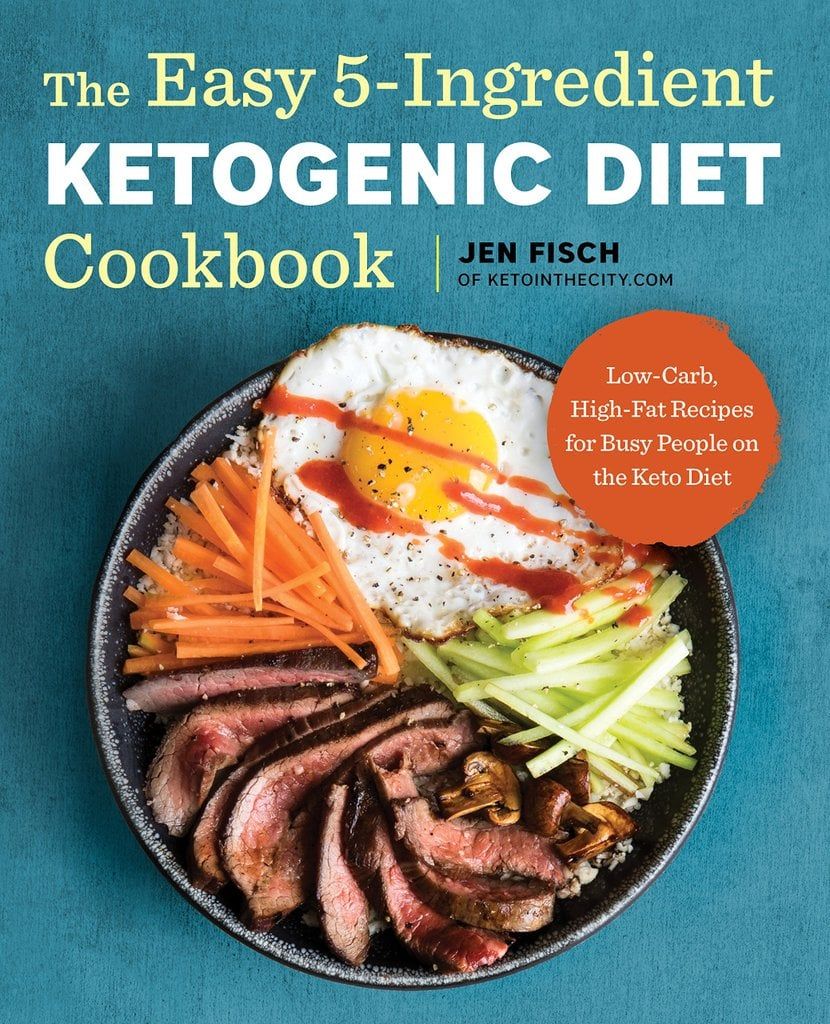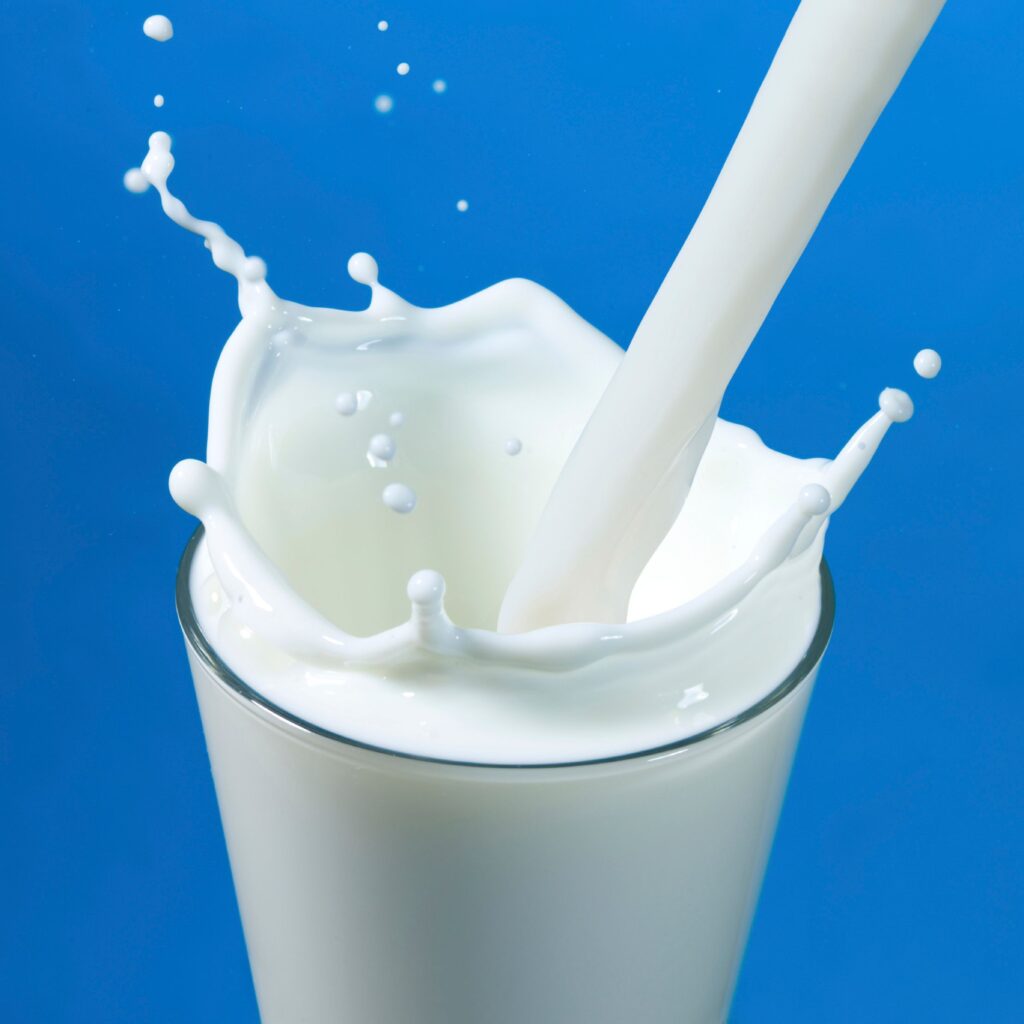
The allure of celebrity lifestyles extends far beyond fashion and entertainment; it deeply influences our perceptions of health, fitness, and beauty. With a constant stream of perfectly toned physiques and glowing complexions filling our feeds, it’s only natural for many to look to their favorite stars for the secret to a better body or boundless energy. From restrictive meal plans to trendy “detoxes,” celebrity-endorsed diets often capture public imagination, promising rapid, transformative results, leading countless fans to wonder: do these celebrity nutrition trends actually work, or are they simply fleeting fads?
However, the glittering world of celebrity wellness often presents a distorted reality. What works for an individual with an army of personal trainers, private chefs, and nutritionists, not to mention ample time and resources, is rarely a sustainable or healthy path for the average person. Many popular celebrity nutrition trends, despite their widespread adoption, lack scientific validation and can even pose significant risks to long-term health and well-being. It’s crucial for consumers to discern credible advice from fleeting fads, as the efficacy and sustainability of these trends for the general public are often debatable and, in many cases, questionable.
In an age where social media amplifies every new dietary claim, it’s more important than ever to approach health trends with a critical eye. As registered dietitians and qualified healthcare professionals emphasize, the best approach to nourishing our bodies involves balance, moderation, and evidence-based strategies, not deprivation or self-denial. This article will delve into some of the most pervasive celebrity diet trends that nutritionists widely advise against, shedding light on their potential pitfalls and guiding you towards truly sustainable and healthy lifestyle choices.

1. **The Ketogenic Diet: Demonizing a Core Food Group**The Ketogenic diet, widely adopted by celebrities like Rihanna, Kim Kardashian, and Gwyneth Paltrow, is often lauded for its promise of rapid weight loss. This diet fundamentally revolves around a low consumption of carbohydrates, significantly reducing the body’s primary energy intake. The intention behind this restriction is to force the body to utilize existing fat as its main energy source, a metabolic state known as ketosis. While this approach can indeed lead to a calorie deficit, experts like personal trainer Max Bridger raise significant concerns about its long-term viability and potential health implications.
One of the primary worries associated with the Ketogenic diet is its tendency to unfairly demonize carbohydrates, a fundamental component of the five core food groups taught in primary school. Max Bridger points out that this restrictive elimination of an entire food group can be “a worrying catalyst for the development of unhealthy associations with the food group,” potentially leading to a form of disordered eating known as orthorexia. While achieving a calorie deficit is key for weight loss, it can be accomplished “without unfairly demonising carbohydrates and sugar,” as Bridger explains, allowing for a more balanced and psychologically healthier relationship with food.
The highly restrictive nature of the Ketogenic diet also contributes to its unsustainability. By withholding an entire food group, individuals are more likely to experience intense cravings, which can ultimately trigger desires to binge-eat, sabotaging long-term efforts. Max Bridger emphatically states that it is “a very restrictive and unenjoyable way to eat, and it will only set you up for failure.” Cutting out whole food groups, he asserts, “just isn’t the way to get cut!” A truly effective weight management strategy should prioritize a balanced intake of all macronutrients, ensuring both physical satisfaction and mental well-being.
Moreover, Ellie Cheale, a registered dietitian and nutritionist, highlights that most restrictive diets, including keto, often “lack scientific evidence supporting their long-term effectiveness—causing most individuals to regain weight once they return to their usual eating habits.” Carbs are a main source of glucose, essential for optimal bodily function. While portion size is important, a “low-carb, high-fat” diet can be ineffective for many, potentially promoting nutrient deficiencies and disordered eating patterns over time. The “one-size-fits-all approach” promoted by many fad diets often fails to account for individual uniqueness and varying nutritional needs.

2. **The 5-2 Diet: A Questionable Approach to Fat Loss**The 5-2 diet, popularized by figures such as Beyoncé, operates on the principle of intermittent fasting, a dietary pattern that cycles between periods of eating and voluntary fasting. Specifically, this regimen involves eating ‘normally’ for five days of the week, followed by two non-consecutive days where calorie intake is drastically limited to under 600 calories. While this method might appeal to those seeking a ‘quick fix’ for weight loss, personal trainer Max Bridger identifies it as “one of the least sustainable of all in terms of fat loss.”
Despite its flexibility in allowing individuals to choose their fasting days, the 5-2 diet rarely proves suitable for a person’s lifestyle in the long term. The extreme calorie restriction on fasting days can be challenging to adhere to and often disrupts daily routines, making it difficult to maintain social eating habits or energy levels for regular activities. The ‘normal’ eating days might also lead to overcompensation, negating the calorie deficit achieved during fasting periods, demonstrating that adherence to the plan is a significant factor in outcomes.
A significant drawback of such restrictive intermittent fasting protocols is the likelihood of weight regain once an individual reverts to their usual eating patterns. Max Bridger explains that “not only will you put the weight back on once you return to your normal diet, but your metabolism will most likely slow after being forced into starvation mode.” This metabolic adaptation can make future weight management even more difficult, trapping individuals in a cycle of dieting and regaining, undermining the commitment to a balanced diet and regular physical activity required for sustainable results.
While Bridger acknowledges that the diet could offer one potential benefit—helping individuals “identifying those hunger triggers”—this brief insight is often overshadowed by the larger risks. Addressing hunger triggers once returning to a ‘normal’ diet might offer “at least some benefit,” but this minimal advantage hardly justifies the restrictive and potentially metabolically detrimental nature of the diet. Sustainable weight loss and healthy eating should focus on consistent, balanced nutrition rather than drastic, temporary caloric cycling that can confuse the body’s natural hunger and satiety signals.

3. **Meal Replacement Shakes: Empty Promises in a Bottle**Meal replacement shakes have found favor with celebrities like Kim Kardashian and Khloe Kardashian, often presented as a convenient and effective solution for weight loss. These products are typically marketed as a ‘thermogenic (fat loss) blend’ that can replace one or two regular meals a day. However, personal trainer Max Bridger offers a candid assessment, stating that the reality of these shakes is often far from the appealing promises. He notes that what you actually tend to get is “a protein-based substance that tastes not too dissimilar to thickened water, totalling up barely a few hundred calories.”
The immediate weight loss observed with meal replacement shakes is primarily a direct consequence of this dramatic reduction in daily calorie intake. While a calorie deficit will undoubtedly lead to weight loss in the short term, Bridger stresses that “it’s neither going to be fun or sustainable.” The lack of solid food, variety, and the overall sensory experience of eating can make adherence incredibly challenging and lead to feelings of deprivation. This approach bypasses the fundamental principles of healthy eating, such as mindful consumption and balanced nutrition, in favor of a quick, albeit unsatisfying, fix.
Furthermore, the long-term sustainability of weight loss achieved through meal replacement shakes is highly questionable. By severely limiting calorie intake, the body’s metabolism can slow down as it adapts to conserve energy. Bridger cautions that “by limiting your calorie intake, you become more susceptible to weight gain when you return to a normal diet as a result of a slowed metabolism.” This rebound effect is a common pitfall of restrictive diets, where the initial success is often followed by regaining lost weight, and sometimes even more, indicating that the body’s cells struggle to adjust to such dramatic changes.
Ellie Cheale reinforces this perspective, noting that diets which promote “drastic eating habit changes or reliance on detox products” should be approached with caution. Meal replacement shakes often fall into this category, pushing a quick-fix solution that neglects the broader aspects of a healthy relationship with food and sustainable lifestyle changes. Instead of providing comprehensive nutrition, they frequently offer an incomplete and unsatisfying substitute for real meals, making it difficult to cultivate healthy, long-term eating patterns.

4. **Juice Cleanses and Detox Diets: A Risky Path to “Quick Fixes”**Juice cleanses and detox diets are enduring celebrity favorites, with stars like Miranda Kerr and Jessica Alba reportedly trying them to drop weight rapidly. These protocols typically involve consuming all, or the majority, of one’s food in the form of juiced fruits and blended leafy vegetable smoothies. While testimonials, such as TOWIE’s Gemma Collins raving about how it helped her “lose three stone in 28 days” with limited exercise, circulate widely, fitness expert Max Bridger views such claims as “a red flag.” He emphasizes that while juicing can be a way to get important nutrients, it is “just not sustainable, nor is it a smart method to lose weight and keep it off.”
The allure of these cleanses often stems from promises of “detoxifying” the body and promoting quick weight loss. However, Lauren Manaker, a dietitian, states that “there is limited scientific evidence to support these claims.” The human body already possesses highly efficient detoxification systems through the liver and kidneys, rendering external “detox” products largely unnecessary. Any initial weight loss observed is typically due to severe calorie restriction and water loss, rather than a genuine cleansing process or sustainable fat reduction.
A significant risk associated with juice cleanses is their tendency to “unbalance your diet,” as Max Bridger explains. These diets often result in “extremely minimal fats and minimal protein,” critically important macronutrients, and a “lack of fibre from the fruit lost in the juicing process.” This nutritional inadequacy can lead to a host of problems, including fatigue, muscle loss, and potential long-term deficiencies in essential nutrients like protein, fiber, calcium, and vitamin D. Furthermore, the drastic calorie slashing can decrease feelings of fullness and, in the long-term, may even slow your metabolic rate, making sustained weight management even more challenging.
Maddie Pasquariello, another dietitian, highlights that “while you might lose weight in a relatively short span of time by doing these cleanses and detoxes, that’s typically because they severely restrict calories (not to mention they lack essential nutrients and aren’t sustainable), so you’ll likely find yourself bouncing back to your initial weight sooner than later.” Instead of these restrictive and often ineffective fads, Manaker advises focusing “on a balanced diet rich in whole foods including fruits, vegetables, lean proteins, and whole grains for sustainable and long-term health benefits.”

5. **Detox Teas: Costly Claims with Risky Side Effects**Detox teas have gained significant traction, particularly among social media influencers and celebrities like Kylie Jenner and Khloé Kardashian, who tout their supposed benefits for weight loss and toxin elimination. The claims often include increased metabolism, enhanced energy levels, and appetite suppression as some of the core ways in which they work their ‘magic’. However, personal trainer Max Bridger expresses considerable doubt regarding these assertions, suggesting that the reality falls far short of the hype, and often comes with a financial cost and health risks.
While some detox teas may contain caffeine, which can indeed “increase lipolysis (the conversion of body fat to free fatty acids),” Bridger emphasizes that “this will mean nothing unless you’re creating a calorie deficit to reap the rewards.” In essence, simply consuming caffeine without addressing overall caloric intake and expenditure will have minimal impact on body composition. He further points out that most detox teas contain “no more caffeine than your regular cup of tea or coffee,” meaning their metabolic boosting effect is negligible, making them an expensive and ineffective solution for actual weight loss.
Beyond their questionable efficacy for weight management, detox teas often carry significant health risks due to their common inclusion of laxative properties. Max Bridger warns that these properties “can cause irregular bowel movements that can be dangerous.” Relying on laxatives for weight loss is not only unsustainable but can lead to dehydration, electrolyte imbalances, and potentially serious digestive issues. Such products exploit a misunderstanding of how the body naturally detoxifies, offering a misleading shortcut that bypasses healthy physiological processes.
Ellie Cheale advises extreme caution for any diet that relies on “detox products,” reinforcing the nutritionist consensus that these items are rarely beneficial and often harmful. Rujuta Diwekar, another renowned celebrity nutritionist, strongly advises against adopting “fusion food” trends or anything that creates “food-related conflict, filled with doubts and misconceptions.” The emphasis should be on traditional, balanced eating rather than expensive, unproven teas that offer quick fixes but compromise health; indeed, a doctor has started a petition against detox teas.

6. **Avoiding Seed Oils at All Costs: A Misguided Fear**In 2024, seed oils inexplicably emerged as one of the most significant “dietary bad guys,” fueling a widespread trend of avoiding them entirely. This fear-mongering narrative, amplified through social media, suggests that seed oils are inherently harmful or inflammatory. However, dietitian Maddie Pasquariello, MS, RDN, firmly asserts that these concerns are “ill-advised.” The panic surrounding seed oils often stems from a misconception, as people “mistakenly associat[e] the rise in consumption of ultra-processed foods—which are often high in sodium, sugar, and fat—causing worsened health outcomes with seed oils specifically.”
The reality, as Pasquariello explains, is quite different. Many seed oils, such as sunflower, safflower, soybean, and corn oil, are generally good sources of unsaturated fats. If these oils are used to replace sources of saturated fat—like butter or coconut oil—in the diet, they can actually “have a positive effect on health.” There is a critical distinction to be made between the oils themselves and the overall context of an ultra-processed diet where they might be found alongside less healthy components. Attributing negative health outcomes solely to seed oils, rather than the broader dietary pattern, is an oversimplification.
Furthermore, Pasquariello clarifies that “there’s no evidence to suggest that seed oils are any more harmful or inflammatory than other kinds of oils.” The demonization of seed oils lacks a strong scientific basis, perpetuating an unnecessary dietary restriction. Rather than adhering to an extreme avoidance philosophy, a more balanced approach is recommended. Consumers should simply “be mindful of your intake and conscious of other sources of fat in your diet.”
The emphasis should be on overall dietary quality. Pasquariello advises that if you “cook with oils in moderation, replace sources of saturated fat [e.g., butter and coconut oil] with unsaturated fat when possible, and regularly consume other sources of healthy fats like nuts, seeds, and avocado, you’re on the right track.” The goal is not to eliminate entire categories of food based on unsubstantiated fears, but to integrate a variety of healthy fats as part of a diverse and balanced eating pattern, contributing to better health outcomes without the anxiety of strict avoidance.
Continuing our exploration into the often-misleading world of celebrity-endorsed nutrition, this section unveils additional viral dietary practices that, despite their popularity, lack scientific backing and can even pose risks. As we’ve seen, the allure of quick fixes and celebrity glamor can often overshadow the fundamentals of balanced nutrition. Now, let’s critically examine five more trends that demand a discerning eye, before concluding with expert advice on fostering genuinely sustainable and healthy eating habits.
7. **Taking Olive Oil Shots: A Misguided Health Fad**The year 2024 saw a peculiar trend emerge: taking daily shots of olive oil, promoted widely for its supposed heart health benefits. While olive oil is undeniably a star in the nutrition world, celebrated for its richness in antioxidants, anti-inflammatory properties, and its significant role in the heart-healthy Mediterranean diet, the act of “chugging” it daily doesn’t quite get a green light from nutrition experts.
Dietitian Maddie Pasquariello, MS, RDN, cautions against this practice, clarifying that while olive oil is beneficial, there’s no scientific rationale for consuming it in such large, concentrated doses. The human body is typically quite efficient at absorbing fats from food, and most individuals already obtain sufficient dietary fat without needing to resort to olive oil shots.
Excessive intake of any fat, even a healthy one like olive oil, can lead to an unintended calorie surplus, potentially undermining weight management goals. Moreover, relying on isolated “superfoods” or concentrated doses often distracts from the broader picture of a balanced diet, which is far more crucial for overall health than any single ingredient.
Instead of downing olive oil shots, Pasquariello suggests integrating healthy fats into your diet through more modest and enjoyable tweaks. This could involve adding nutrient-dense options like avocado, pumpkin seeds, or simply a measured splash of olive oil to your meals. These approaches ensure you reap the benefits of healthy fats without overdoing it or adopting unnecessary, unproven habits.

8. **Drinking Raw Milk: Unnecessary Risks for Purported Benefits**Among the more concerning food trends to gain traction recently is the notion that raw milk is superior to pasteurized milk. This belief, often spread through viral content, claims raw milk offers enhanced health benefits. However, health professionals and regulatory bodies universally caution against this trend due to serious health risks.
Maddie Pasquariello highlights this as “one of the most prevalent and perhaps dangerous of all of the food trends to come out of this past year.” The U.S. Food and Drug Administration (FDA) explicitly warns that raw milk can harbor dangerous pathogens, including Salmonella, E. coli, and Listeria. These bacteria can cause severe, sometimes fatal, illnesses, especially in vulnerable populations such as children, the elderly, pregnant women, and those with weakened immune systems.
Pasteurization, a process involving heating milk to a specific temperature for a set time, is a scientifically proven method to eliminate harmful bacteria without significantly compromising nutritional value. Pasquariello emphasizes that “spreading fear and misinformation over safe, beneficial practices like pasteurization is extremely dangerous and deceitful.”
Therefore, the purported benefits of raw milk are largely unsubstantiated by scientific evidence and are far outweighed by the very real and serious risks of bacterial contamination. When you encounter content promoting raw milk, it’s best to scroll past and prioritize the scientifically validated safety of pasteurized dairy products. Making informed choices rooted in evidence is crucial for safeguarding your health and that of your family.

9. **Hypervigilance Over Glucose Spikes: A Misguided Focus**In recent times, influenced by glucose influencers and the rise of Continuous Glucose Monitors (CGMs) for “biohacking,” a significant trend has emerged: extreme hypervigilance over glucose spikes. Many individuals are now led to believe that a single carb-rich meal or a minor dietary misstep could inevitably lead to diabetes, creating unnecessary anxiety around eating.
However, dietitian Maddie Pasquariello clarifies that this fear-stoking is both misleading and unhelpful. Type 2 diabetes is a complex condition that develops over a prolonged period, typically due to a sustained energy surplus. This surplus leads to the body’s cells becoming resistant to insulin, impairing their ability to take up glucose and resulting in elevated blood sugar levels, eventually damaging the pancreas.
Crucially, Pasquariello emphasizes that carbohydrates are not the sole culprit. A balanced intake of all macronutrients within healthy calorie bounds, combined with a consistent exercise regimen, is far more important for preventing Type 2 diabetes than fixating on individual glucose spikes, which are a natural physiological response to most meals. Genetics also play a significant role in an individual’s predisposition to the condition.
Rather than engaging in stressful and often counterproductive monitoring of every blood sugar fluctuation, a more effective and sustainable approach involves maintaining a consistent exercise regimen and managing overall caloric intake over time. Empowering yourself with a balanced lifestyle, rather than succumbing to the fear of individual food items, is key to long-term metabolic health.

10. **Linking Foods to Cortisol Levels: Unnecessary Dietary Anxiety**Cortisol, often dubbed the “stress hormone,” has become another focus of dietary anxiety, with many social media trends suggesting that specific foods can cause detrimental cortisol spikes that lead to negative health outcomes, including weight gain. This narrative often demonizes cortisol, painting it as an enemy to well-being.
However, dietitian Maddie Pasquariello offers an important reminder: cortisol is not inherently bad. It plays a vital role in numerous bodily functions, such as providing energy upon waking, maintaining focus, and regulating metabolism. Furthermore, cortisol levels naturally rise after consuming main meals as part of the body’s normal digestive and energy-processing responses.
Pasquariello firmly states, “There’s no reason to avoid any specific food in an effort to lower your cortisol, nor do you need to lower your cortisol levels to avoid gaining body fat.” The idea that one must meticulously craft their diet around preventing minor, natural cortisol fluctuations is an oversimplification and often leads to unnecessary dietary restrictions and stress.
For most individuals, maintaining cortisol levels within a healthy range is better achieved through holistic lifestyle practices rather than by eliminating specific foods. Prioritizing healthy outlets for stress management, ensuring adequate and restorative sleep, and engaging in regular physical activity are far more effective strategies for hormonal balance and overall well-being.
**Moving Beyond Fads: Embracing Sustainable, Evidence-Based Nutrition**
As we’ve navigated the intricate landscape of celebrity diet trends, a clear pattern emerges: the most enduring and beneficial approaches to health are rarely found in quick fixes or extreme restrictions. Instead, they lie in balance, moderation, and evidence-based strategies. The allure of celebrity endorsements can be powerful, but discerning consumers must equip themselves with knowledge to separate fleeting fads from legitimate health practices.
To identify a truly credible food trend, registered dietitian Lauren Manaker, MS, RDN, advises investigating source credibility. This means looking to reputable organizations, qualified healthcare professionals like registered dietitians, and well-established research institutions, rather than relying solely on influencers or paid spokespeople. Before blindly following any trend, it’s crucial to conduct your own research, fact-checking claims against scientific studies and peer-reviewed journals. Critically, we must resist the growing urge to dismiss science, recognizing that food safety and public health messaging from bodies like the FDA are built on decades of rigorous research designed to protect us.
Personal trainer Max Bridger encapsulates this wisdom by stating, “all of these ‘diets’ simply don’t have what it takes to sustain.” He champions a balanced diet composed of “80% healthy choices and 20% of simply what you like,” paired with consistent exercise. For weight management, the core principle remains the “calories in vs calories out” equation: burning more calories than you consume. This strategy, combined with regular physical activity—three to five times a week, incorporating weights, resistance, cardio, or sport—is the proven path to long-term fitness and health.
Ellie Cheale, a registered dietitian, reinforces that a healthy diet must support “physical, mental and emotional well-being.” She advises caution against diets with extreme restrictions, drastic eating habit changes, or reliance on “detox products.” A truly balanced diet embraces variety, moderation, and adequate nutrition. Consulting with registered dietitians or nutritionists is invaluable for making informed dietary decisions tailored to individual needs. Beyond diet, prioritizing sleep and effective stress management are equally critical for long-term success, as is surrounding yourself with a supportive network of friends, family, and professionals.
Renowned nutritionist Rujuta Diwekar advocates for a return to traditional, balanced diets, emphasizing the importance of local, seasonal, and time-honored foods. She cautions against “fusion food” trends that cause “food-related conflict, filled with doubts and misconceptions,” and encourages mindful eating without negativity. Diwekar’s wisdom underscores that our traditional diets inherently contain everything we need, if only we grant them the importance they deserve, rather than chasing every new, unproven dietary claim.
In essence, while food trends will always come and go, the timeless principles of health endure. Prioritize mindful eating, prepare balanced meals with portion control, stay hydrated, and commit to regular physical activity. There’s no single diet that fits everyone, but dietary diversity and balance are universal tenets for optimal health outcomes. The most empowering step you can take for your well-being is to seek personalized, evidence-based guidance from a qualified dietitian, allowing you to cultivate a sustainable, nourishing relationship with food that truly supports your best life.




